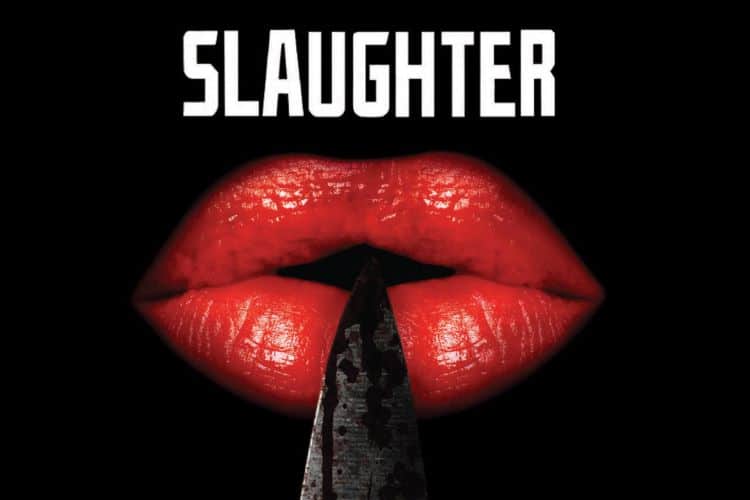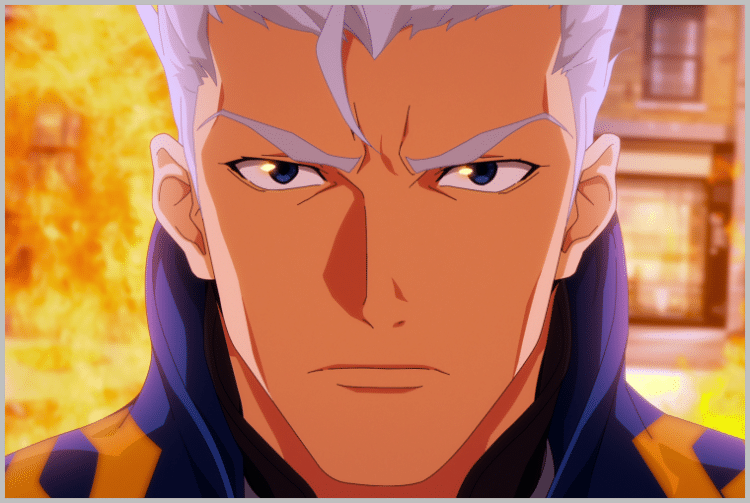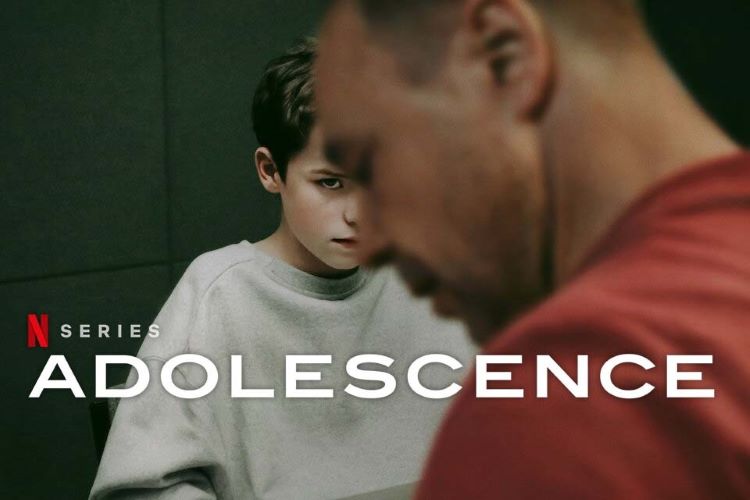It Only Rhymes with Witch!
Main Cast: Gillian Anderson, David Duchovny
Director: Kim Manners
Not everything that should be a no-brainer works out the way we think it will. For example, in 1998, one of the hottest shows on TV was THE X-FILES. I watched it, you watched it, and sometimes, after the fact and if we did our job as parents, our kids came behind us and watched it. And considering it was, at the time, the closest thing we had to a “horror” series on television, it only made sense that, at some point, Stephen King would poke his head into the room and say hey. This happened after King beat X-FILES star David Duchovny in a round of Celebrity Jeopardy! when King mentioned he liked the show and wouldn’t mind writing something for it.
Yadda yadda yadda and some time later, we have Chinga.
Chinga, the tenth episode of season five, is the exact kind of story I would expect from King. In it, Dana Scully (Gillian Anderson) is on vacation in Maine when she sees a commotion at a local grocery story. Shoppers are filing out by the dozens, all of them startled, confused, and bleeding from the eyes.
Ever the FBI agent, even when she’s constantly insisting, “I’m on vacation,” Scully can’t help but offer her assistance to the local PD of the very small town of Amma Beach.
By watching the video surveillance tapes, they notice the only person in the store at the time of the incident who wasn’t affected was Melissa Turner who, the local police chief informs Scully, is considered a witch by the local inhabitants.
Now, I don’t know about you, but a story about a woman everyone in town thinks is a witch in a grocery store and her name is Melissa, I’m IMMEDIATELY taken to the Touch of Satan episode of Mystery Science Theatre 3000 and from here on out, that’s all I can think of, and it was a real missed opportunity to not name the character Melissa Strickland. But I digress.
Chief Bonsaint, and that’s a King name if ever I heard one, gives Scully some background info on Melissa TURNER, how she was married to a local fisherman who last year was found with a hook in his skull, meanwhile, Melissa is being hassled by her daughter Polly.
Polly is autistic and her only desire is to listen to her Hokey Pokey 45 while clutching her doll Chinga. Chinga was a present from her father before he died, pulled up from the ocean in a lobster trap, so you know it’s bad news. Melissa gets a call from a friend on the force, Riggs, who gives her a key to his cabin in the woods and tells her to take Polly and go there for a while to get away from town. After what happened at the store, folks aren’t too eager to see her around. But when Melissa tries to follow Riggs’s advice, Chinga gets upset and shows Melissa disturbing images of dead people.
This is the crux of the story. Melissa needs to go to the store, but Polly doesn’t want to and if Polly doesn’t want to, Chinga doesn’t want to, and if Chinga doesn’t get her way, people die. Melissa knows the doll is responsible, but Polly loves the doll and Melissa loves Polly, so what’s a mother to do?
After following the clues and gathering the information that leads them to Melissa’s door, Scully and Bonsaint find out the answer to that question when Melissa douses the house in kerosene and tries to strike a match.
But Chinga has other plans. Instead of letting Melissa kill herself and Polly, how about if she makes Melissa bash her own brains in with a hammer?
It’s a race against time as Scully and Bonsaint try to get inside and save Melissa from herself AND the killer doll.
So, another King on Film story down. How does this one stack up?
Meh. Could have taken it or left it, honestly. I remember when it aired in ’98 being very excited that STEPHEN KING was writing an X-FILES episode, and then the immediate disappointment that THIS was the episode we got.
That’s not to say it’s terrible, there are definitely MUCH worse episodes of THE X-FILES, and much worse films adapted from King’s work. But still, it was a match made in TV heaven and it should have stood out as one of the greats.
Instead, it’s just so-so.
According to what I have read, King’s script had to be majorly re-written by series creator Chris Carter because King just didn’t have the Mulder and Scully patter down. One of the biggest changes from King’s original script was separating Mulder and Scully and that was one of my main problems with the episode. We only get Mulder sporadically throughout the episode as he’s back at work, bored out of his mind, while Scully is off in Maine having adventures. That’s not what I tuned in for!
I mean, it’s good to see Scully solve a case without Mulder’s input, but she only does so by adopting Mulder’s out of the box, supernatural way of thinking, which leads them directly to Chinga, so she didn’t even get to solve it on HER terms, which sucks for her as a character.
If the solution is going to be so overtly supernatural, let Mulder solve it.
Also, and this may be a stupid gripe, because it’s Stephen frickin’ King writing the episode, but holy God, could it have been any more obvious it was a King story? Set in Maine. One of the old Maine characters constantly says, “Ayuh”. There’s a matronly daycare teacher who gave off huge Mrs. Carmody (THE MIST) vibes that was a straight King cliché. Even the use of The Hokey Pokey as a plot device has King’s name written all over it. But this is TV King and if we’ve learned anything from this review series it’s that TV King is BAD King.
Did we learn nothing from The Shining or The Stand or Chattery Teeth, other than stop giving Mick Garris jobs? And I know it was 1998 and it was network TV and there are limitations, but jeez.
One of the big takeaways from this episode, for me, is that there is a pretty wide gap between literary horror and cinematic horror and rarely the twain shall meet. If this were a story, told in words on a page, the opportunity for scares would have been almost limitless. The horrible grocery store melee, the tension of Mrs. Froelich searching her dark house in the middle of the night while, from one of the rooms, The Hokey Pokey can be heard. Even a scene in an ice cream shop when Polly is demanding “more cherries” could have been told with expert care. But translating those into visuals, without the added benefit of a narrator’s description to carry us through, it’s just not as taut or as threatening.
At the same time, a scene like the bathtub ghost in the George C. Scott classic THE CHANGELING wouldn’t have been as jarring or as terrifying if told in a novel. We need that startling visual to make us jump. And with Chinga, we need the words. We need to READ about Melissa repeatedly hitting herself with the hammer, we need the rhythm of those words which would be so much more powerful than watching actress Susanna Hoffmann acting like she’s hitting herself in the head over and over.
I think, in this case, King was the right one to WRITE this story, I just don’t think, at all at all, that television was medium in which to tell it.
King on Film
1976-1992 (Carrie to Children of the Corn II: The Final Sacrifice)
The Shawshank Redemption (1994)
Children of the Corn III: Urban Harvest (1995)
Sometimes They Comes Back … Again (1996)
Children of the Corn IV: The Gathering (1996)
The Revelations of ‘Becka Paulson (1997)

C. Dennis Moore is the author of over 60 published short stories and novellas in the speculative fiction genre. Most recent appearances are in the Dark Highlands 2, What Fears Become, Dead Bait 3 and Dark Highways anthologies. His novels are Revelations, and the Angel Hill stories, The Man in the Window, The Third Floor, and The Flip.







Leave a Reply